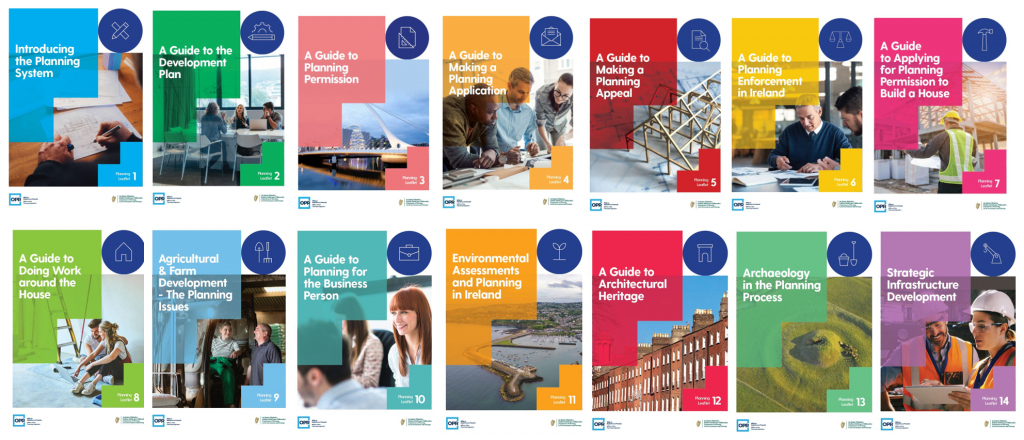New series will help answer your planning questions
A new series of online planning information leaflets which contain practical, accessible information on how the planning system works and explain how best to engage with it, was launched today by Peter Burke TD, Minister of State with responsibility for Local Government and Planning.
The leaflets explain different aspects of the planning system in a clear and concise way. They answer questions and give advice on a range of planning related topics. The purpose of the leaflets is to make the planning system clearer from a public perspective and to inform people how they can participate in it.
The leaflets have been produced by the Office of the Planning Regulator (OPR) in conjunction with the Department of Housing, Local Government and Heritage.
Minister Burke launched the leaflets at a training webinar today for elected members of local authorities organised by the OPR and the Association of Irish Local Government (AILG).
Speaking at the launch, Minister Burke said:
“Proper planning across our communities transforms lives. Look at any place you can think of where people enjoy great quality of life and you will find a place guided by proper planning and sustainable development.
Planning is complex, takes long term vision and commitment to flourish but most of all needs people – ordinary people – to take up its cause and achieve its purpose.
Yet sometimes people see planning as the preserve of experts or their political representatives while struggling to engage with it.
To put the citizen back into the heart of the planning process first takes proper knowledge, information and awareness raising. And we will need that awareness in planning for the rebound from COVID-19 and tackling climate, housing and other issues in how we develop.
That is why – today – I am launching a series of easy to use information leaflets for the public on the workings of the planning process and the role of the people in that process.
These leaflets are a small but crucial step in the work of the Office of the Planning Regulator established by Government to, amongst other things, enhance public awareness of the benefits of planning and its role in shaping communities for the common good.
Replacing leaflets published by my Department back in the 1990s, the new leaflets produced by the OPR in partnership with my Department and the Irish Planning Institute, will, I believe, be an invaluable tool for the householder thinking of improving their home, the business person in developing their premises or anyone who wants to know more about planning and their role in it.”
The leaflets are entitled:
- Introducing the Planning System
- A Guide to the Development Plan
- A Guide to Planning Permission
- A Guide to Making a Planning Application
- A Guide to Making a Planning Appeal
- A Guide to Planning Enforcement in Ireland
- A Guide to Applying for Planning Permission to Build a House
- A Guide to Doing Work Around the House
- Agricultural and Farm Development-The Planning Issues
- A Guide to Planning for the Business Person
- Environmental Assessments and Planning in Ireland
- A Guide to Architectural Heritage
- Archaeology in the Planning Process
- Strategic Infrastructure Development
Planning Regulator, Niall Cussen said;
“Driving public awareness and greater understanding of the planning process is a key function of the OPR. These leaflets are an important contribution to this process and will be a great practical resource.
The OPR is working to promote involvement in the planning process. One of our principal roles is to encourage people to contribute to decisions which will have a tangible impact on the places they live and work, to be aware of how planning impacts on them and be knowledgeable about how to interact with the system.
Empowering citizens with the knowledge of how planning works will help strengthen Ireland’s planning process and generate better planning outcomes for individuals and communities.”
The leaflets are available at www.opr.ie/planning-leaflets/. They will also be made available on the websites of local authorities, libraries, and citizen’s information centres.

